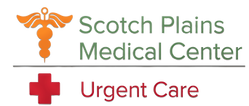How To Solve Drug Addiction?
Drug addiction is an issue that affects millions, and while it may feel like an overwhelming challenge, there are practical steps anyone can take to regain control. Whether it’s you or someone you care about, understanding how to break free from addiction is vital to finding hope and healing. It’s not about having a magical answer or a quick fix but taking action one step at a time. This journey can lead to a healthier, happier life. Let’s explore how.
The Root Cause
Before diving into solutions, it’s essential to understand why addiction happens in the first place. Drug addiction isn’t just a physical dependence on a substance; it’s often tied to deeper issues like trauma, stress, or mental health struggles. For many, addiction starts as a way to cope with emotional pain or life challenges. Recognizing that addiction may be a response to underlying problems is the first step in finding practical solutions.
Each person’s battle with addiction is unique. What triggers addiction for one person might be different for someone else, so there’s no one-size-fits-all answer. But regardless of the specifics, acknowledging the root cause can give you a more straightforward path forward. It helps to see addiction as something that can be managed, not as an identity or permanent label.
Taking the First Step: Acknowledgement
Admitting a problem can be one of the most complex parts of the journey, yet it’s the most crucial. Without recognizing that addiction is negatively impacting life, progress is nearly impossible. Denial often holds people in the grip of addiction, making it easier to justify continued use. But once the issue is acknowledged, it opens the door to real solutions.
Admitting addiction isn’t just about admitting it to others—self-awareness plays a significant role. It’s about looking in the mirror and recognizing that change is necessary. This can be difficult, especially with the stigma surrounding addiction, but it’s also a brave and empowering move. When you take ownership of the problem, you gain the power to change it.
Seeking Support: You’re Not Alone
One of the greatest misconceptions about drug addiction is that it’s something to be battled alone. In reality, support is essential for lasting recovery. Whether it’s friends, family, or professional help, surrounding yourself with people who care makes a huge difference. It’s critical to reach out and lean on others, especially during moments of vulnerability.
Support groups like Narcotics Anonymous (NA) and Alcoholics Anonymous (AA) are also invaluable resources. They connect you with people who truly understand the struggle because they’ve been there. Sharing experiences and learning from others’ journeys can provide insight, motivation, and hope. In addition to peer support, counseling or therapy or choosing addiction treatment services is often a great way to explore the emotional roots of addiction and develop coping strategies.
For many, professional help is a crucial step. Seeking counseling or working with a therapist who specializes in addiction can help unravel the reasons behind the drug use. They can provide guidance tailored to your needs, offering tools to manage cravings and develop healthier habits.
Creating a Plan for Change
Once you’ve acknowledged the issue and built a support system, it’s time to create a solid change plan. Recovery doesn’t happen overnight—it requires intentionality and a concrete strategy. This plan should be personalized to your situation, but certain elements are essential for everyone.
Start by setting small, achievable goals. Maybe it’s cutting back use in a structured way, setting a quit date, or attending regular therapy sessions. The key is to break down the overwhelming process into manageable steps. Celebrating small victories is essential to maintain motivation along the way. Whether it’s getting through a week without using or learning a new coping skill, every win counts.
A plan also includes removing triggers that lead to drug use. This might mean avoiding specific environments, ending toxic relationships, or replacing harmful habits with positive ones like exercising, reading, or creative hobbies. Developing these healthy outlets can help ease the transition away from addiction and give life a new focus.
Managing Withdrawal and Cravings
One of the most challenging aspects of overcoming addiction is dealing with withdrawal symptoms and cravings. This can be a difficult period, but it’s temporary. Understanding that cravings will pass and having strategies to manage them is critical.
Physical symptoms of withdrawal vary depending on the substance, but they often include anxiety, irritability, and even physical pain. It’s vital to seek medical advice during this period, especially for substances like opioids or alcohol, which can have dangerous withdrawal effects. Medical professionals can provide medications that ease withdrawal symptoms, making the process safer and more manageable.
Learning to manage cravings is an ongoing challenge. Cravings don’t just disappear after withdrawal; they can return months or even years after quitting. However, they tend to get weaker over time. Techniques like mindfulness, meditation, and breathing exercises can help individuals stay grounded during intense cravings. Distracting yourself with an activity or calling a friend from your support system can also provide relief.
Building a New Routine
Once the withdrawal phase is behind you, it’s crucial to build a life that doesn’t leave room for relapse. Structure and routine play a big part in this. A consistent daily routine provides stability and reduces the likelihood of falling back into old habits.
Fill your days with activities that promote well-being. This can include work, school, volunteering, or hobbies. Keeping busy doesn’t just prevent boredom; it also builds a sense of purpose. Engaging in physical exercise is particularly effective—it boosts mood and can naturally reduce stress, which is often a trigger for drug use.
Healthy eating, proper sleep, and regular exercise contribute to both physical and mental health, which are essential during recovery. With each day, the new routine becomes more familiar, replacing the old patterns that kept the addiction alive.
Relapse Is Part of the Process
Recovery from addiction isn’t always a straight path. There may be setbacks, and that’s okay. Relapse doesn’t mean failure; it’s simply a part of the recovery process for many. The key is not to give up if a slip happens. Instead of viewing a relapse as a complete loss, treat it as a learning experience. Reflect on what triggered the relapse, and adjust your recovery plan accordingly. There are guides available to prevent relapse and maintain sobriety.
Staying committed to the overall goal and seeking support makes it easier to get back on track after a setback. The journey to recovery is about resilience, and every day presents an opportunity to make healthier choices.
Overcoming drug addiction is a challenging journey, but it leads to a more fulfilling and healthier life. Acknowledging the problem, building a solid support system, creating a plan, and developing healthy coping strategies are crucial. Remember, this isn’t something you have to face alone—support is available, and every step you take brings you closer to freedom. Change is possible, and the future can be brighter than you imagine.




